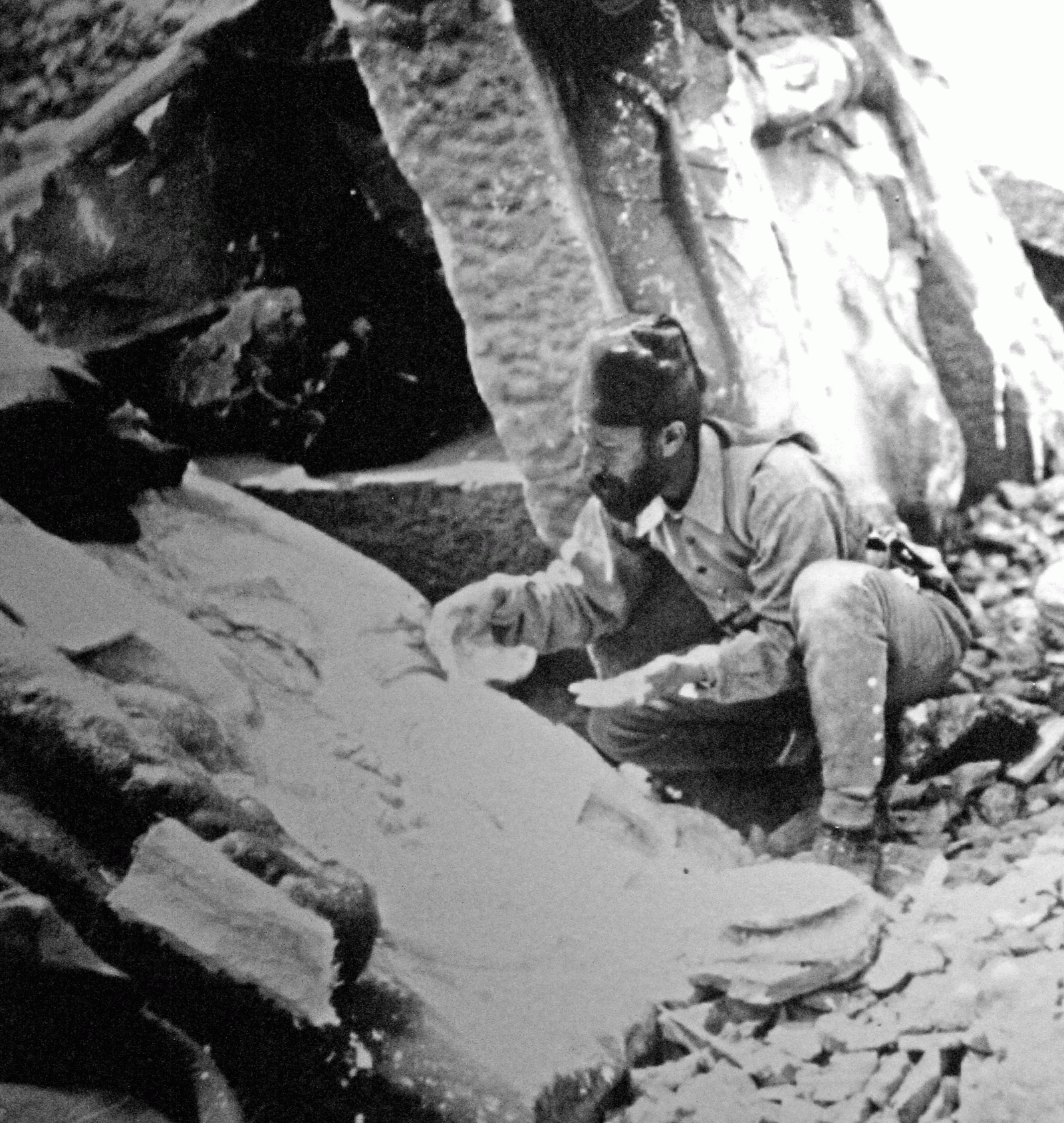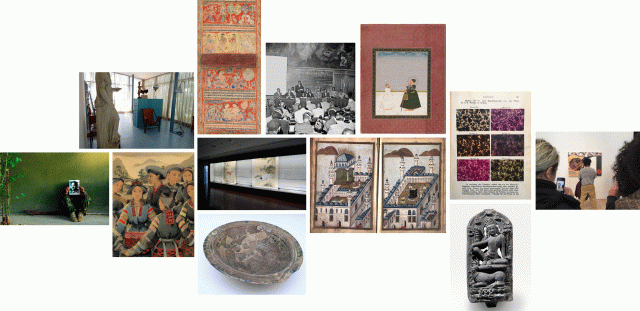Art Histories Seminar
Filiz Tütüncü Cağlar: Rewriting the History of Ottoman Archaeology: The Case of Raqqa Excavations by the Ottoman Imperial Museum (1905-6 and 1908)

Osman Hamdi Bey taking cast of sculptural reliefs on Mt. Nemrud during the first excavation of the Ottoman Imperial Museum, 1883.
The existing historiography of Ottoman archaeology lacks a comprehensive assessment of the historical and cultural contexts, in which archaeology developed as a transnational discipline in the late Ottoman Empire. The field is in need of more scholarly attention particularly from archaeologists and art historians, who can offer new perspectives by integrating alternative sources with traditional methods to the practice and conceptualization of archaeology in the Ottoman Empire. This talk attempts a more nuanced explication of the Ottoman endeavors in archaeology by contesting both the Eurocentric paradigms of the Western accounts and the nationalist discourses of Turkish historians dominating the current historiography at the expense of more entangled aspects of history. To this aim, it illustrates two excavation campaigns undertaken in Raqqa by the Ottoman Imperial Museum in the first decade of the twentieth century and their finds collection housed in the Museum of Turkish and Islamic Arts in Istanbul. Through the case of Ottoman excavations in Raqqa and elsewhere in the empire, this talk will explore the ways in which the Ottomans actively engaged with archaeology inside and outside their museum while unfolding the transnational nature of archaeological research which greatly relied on the collaboration of a diverse and cosmopolitan group of archaeologists. Drawing on historical sources such as reports, correspondence and publications of the museum officials as well as archaeological material retrieved from the excavations, this talk opens new lines of inquiry and proposes a new methodology to the study of Ottoman archaeological explorations.
Filiz Tütüncü Çağlar (Art Histories Fellow 2018/19) is an archaeologist specializing in Byzantine and Islamic archaeology. Her research focuses on the material culture of early Islamic Raqqa, and on the history of Ottoman archaeology by integrating archaeological, textual, and art historical sources in examining the discipline of archaeology as conceptualized and practiced in the late Ottoman Empire. Filiz received her BA in Japanese Language and Literature from Ankara University (Turkey) in 2003, following which she pursued a professional career as a trilingual tour guide. In 2008, she was awarded her MA degree in Archaeology and History of Art at Bilkent University, Ankara; her thesis on the archaeology of horse stables in Middle Byzantine Cappadocia is currently under revision for publication as a monograph. In 2017, Filiz was awarded her PhD in Art History and Visual Studies from the University of Victoria (Canada). Her doctoral thesis entitled, From Raqqa with Love: The Raqqa Excavations by the Ottoman Imperial Museum (1905-1906 and 1908), examines the Ottoman excavations at Raqqa within the broader context of the early history of Islamic archaeology.
29. April 2019, 16:00 Uhr
Archäologisches Zentrum
Brugsch-Pascha-Saal
Geschwister-Scholl-Str. 2-8
10117 Berlin
Hinweis
Diese Veranstaltung wird durch Fotografien und/oder Videoaufnahmen dokumentiert. Falls es nicht Ihre Zustimmung findet, dass das Kunsthistorische Institut in Florenz Aufnahmen, auf denen Sie erkennbar abgebildet sein könnten, für die Veranstaltungsdokumentation und Öffentlichkeitsarbeit (z.B. Social Media) verwendet, bitten wir um eine entsprechende Rückmeldung.



